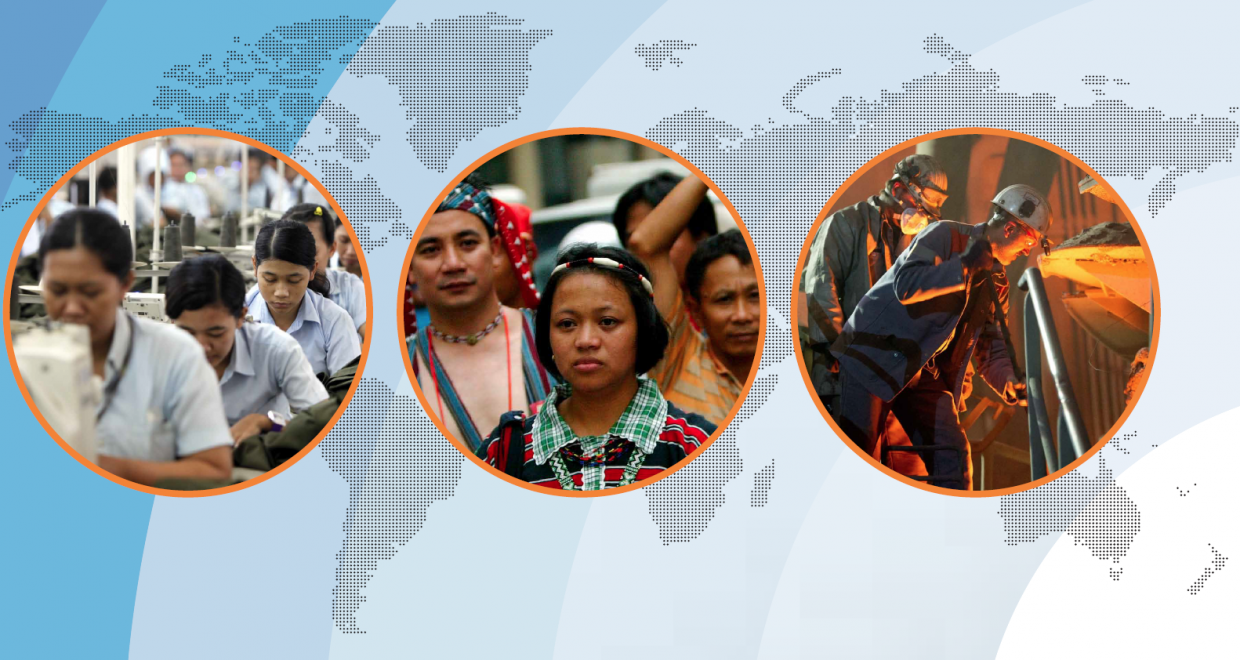Why the Business and Human Rights Community needs to engage with the SDGs
It has been more than two years since world leaders adopted the new 2030 Agenda for Sustainable Development, including the Sustainable Development Goals (SDGs). Since then, two things have become increasingly clear: the SDGs are gaining in momentum and business is running the show. From private investment to close the SDG funding gap to business as a partner in delivering the SDGs – business stands front and center in global and many national SDG debates.
For us working with Business and Human Rights, business’ elevated position within the 2030 Agenda represents both a potential opportunity and a challenge: an opportunity as it brings into the spotlight the actions and impact of business and creates openings for a renewed push of making the human rights responsibilities of business core to the SDGs. A challenge because, if not understood correctly, business’s engagement in the SDGs will risk sidelining human rights, including processes like human rights due diligence.
To date, the threats seem to be looming as human rights have received marginal attention when it comes to business’ contributions to the SDGs. Albeit the SDGs are explicitly grounded in the Universal Declaration of Human Rights and international human rights treaties, there is a real risk that this is not adequately considered by business. If this trend continues, there is the potential risk that the SDGs could evolve into a divergent agenda to Business and Human Rights.
A group of leading civil society organizations and national human rights institutions have previously voiced these concerns in an open letter that we published during the UN General Assembly week in September. In it, we expressed our perspectives that in the context of the SDGs, business responsibility for respecting human rights is viewed only as a matter of compliance and risk management, underestimating the hugely positive development impacts that will be achieved through respecting human rights. The UN Working Group on Business and Human Rights has made a similar statement regarding the need of making human rights a cornerstone when envisioning the role that business will play in the SDGs.
What the Business and Human Rights community can bring to the SDGs
Seeing the SDGs as an avenue to make advances on human rights represents a key opportunity for the business and human rights community. Not only can we provide a much-needed counterweight to the market-driven approach underlying business’ SDG engagement, we also can offer assets that are invaluable for those in the sustainability community:
- We offer international standards for accountability, which will be critical benchmarks for business’ SDG engagement
- We can create visibility for instances of negative human rights impacts of business, particularly around large-scale investment projects, and elevate voices and grievances of rights holders.
- We can bring into focus the role of governments as duty bearers of human rights and thus as drivers of the SDGs.
- We can help ensure that SDG partnership involving business don’t brush over negative human rights impacts and have effective accountability mechanisms in place
- We can help ensure that the SDGs’ ambition of leaving no one behind applies to marginalized and discriminated groups.
- We offer a different set of institutional mechanisms for social progress – ranging from judicial systems to human rights institutions.
What’s in it for us
Engaging in the 2030 Agenda will be an important step for the Business and Human Rights community. Six years since the adoption of the UN Guiding Principles, we are at a critical point. While there has been significant uptake and dissemination of the UN Guiding Principles, we can also see their significant limitations in terms of uptake, implementation and impact.
The Business and Human Rights community can remain a somewhat self-contained space of engagement and activism. For our agenda to stay relevant, we need to be ambassadors of human rights beyond our comfort zone. The SDGs offer a prime opportunity to do that and to recruit new allies for our agenda. By engaging with key actors to the Agenda 2030 (e.g. aid agencies, financial institutions and development NGOs), we can foster and expand the recognition and understanding for our cause and thus ensure that Business and Human Rights becomes a cornerstone of sustainable development.
Ultimately, to bridge the divide between Business and Human Rights and efforts towards the SDGs, we must make clear that respect for human rights is a foundational requirement of a company’s efforts towards contributing to the SDGs, not a distraction from it.







The world and humanity in itself need sustainability more than ever before. The SDGs are designed to ‘end poverty, protect the planet, and ensure prosperity for all’. All these actions need from state and non-state actors.
Furthermore, the three components are linked together. Prosperity only takes place without poverty within a healthy planet; while an unhealthy planet leads towards a negative future without prosperity, and with more poverty.
I believe that the Business and Human Rights community, and the actors committed to the SDGs should come together.
We share the same vision!
Thanks for this post. I really enjoyed reading it.
Laura